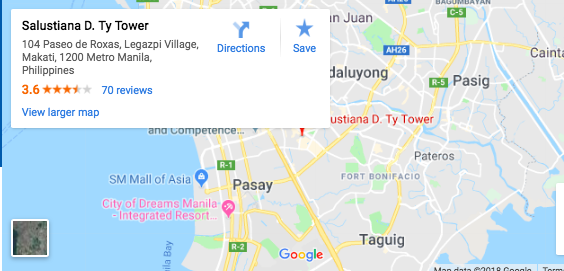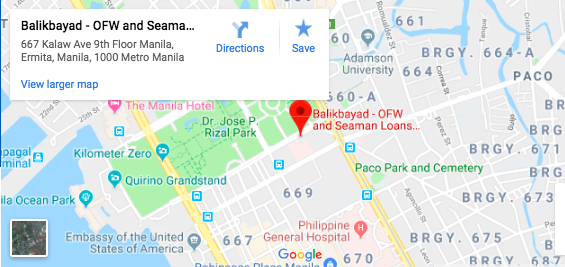You are convinced that PAG-IBIG could help you in boosting your savings, which is why you made sure you diligently paid your contributions every month. After years of paying, you felt that you deserve to get your investment back.
The question is how.
Don’t worry. This post will tell you everything you need to know about how to claim your PAG-IBIG contributions.
But first, can you just withdraw your contributions anytime you like?
The answer is no. In fact, there are conditions that will allow you to withdraw. These conditions include:
1. Maturity
This means you made contributions for at least 20 years or an equivalent of 240 monthly contributions.
In case you are still under the PAG-IBIG Overseas Program (POP), which is different from the present PAG-IBIG savings, you may withdraw your money on the 10th, 15th, or 20th year, depending on what you chose during your registration. Simply present your POP passbook to make a claim.
2. Permanent Departure from the Philippines
In case you plan to leave the country and live abroad permanently, then you may opt to withdraw your contributions even without meeting the 240 monthly contributions requirement.
Still, PAG-IBIG needs proof that you are not coming back and that the country you plan to live in allowed you to stay there. Therefore, you must submit:
- Notarized Sworn Declaration of Intention to Depart from the Philippines Permanently. You can get a copy of the form here.
- Photocopy of passport
- Residence visa, immigrant visa, settlement visa, or any other equivalent documents
3. Retirement
As long as you reach 65 years of age, also known as the compulsory retirement, you may opt to claim your contributions from PAG-IBIG. In case you retire early, say 60 years old, then you can also claim for your contributions as long as you are at least 45 years old.
You need to submit the following documents to make a claim:
- NSO-issued birth certificate
- SSS or GSIS retirement voucher
- At least two valid IDs with photo, birthdate, and signature
- Notarized Certificate of Early Retirement for private employees above 45 years of age
- Order of Retirement, Updated Statement of Service, and Statement of Last Payment for AFP, Philippine Army, and Navy members
4. Separation from Service due to Health Reasons
PAG-IBIG also allows you to claim your contributions in case you can no longer work due to severe health condition. To claim, you must submit:
- Statement of Certification from a doctor indicating such condition
- Notarized sworn employer’s Certification of member’s employment termination due to health reasons
- Latest SSS Disability voucher in case you are a private employee
5. Permanent Total Disability or Insanity
PAG-IBIG members may also claim contributions in case of physical or mental disability as a result of illness or injury. Said condition must render the claimant unable to work or run a business.
The claimant must submit the following documents:
- Certification or statement from physician indicating such condition
- SSS Total Disability Voucher for private employees
- Updated Statement of Service, Statement of Last Payment, and Compulsory Disability Discharge (CDD) Order for AFP, Philippine Army, and Navy members
6. Death
For deceased PAG-IBIG members, their heirs, authorized representatives, or appointed court administrator or executor may file for a claim. In doing so, the following documents must be submitted:
- NSO-issued death certificate
- Notarized Proof of Surviving Legal Heirs (you can get a copy of the form here)
- In case the deceased member has children, NSO-issued birth certificate/s or baptismal / confirmation certificate for ALL the children
- In case the deceased member has minor children or children with PWD, submit a notarized Affidavit of Guardianship. You can get a copy of the form here.
PAG-IBIG will need proof of relationship between the deceased member and the person processing the claim (claimant). Therefore, the following documents must be submitted:
- NSO-issued birth certificate for both the deceased member and claimant
- Non-availability of Birth Record from NSO and notarized Joint Affidavit of Two Disinterested Persons in case birth certificates cannot be presented.
- Certified True Copy of the claimant’s and deceased member’s baptismal or confirmation certificate
- Certificate of No Marriage (CENOMAR) for single members
- NSO-issued Marriage Certificate and Advisory on Marriage for married members
Basic Requirements Needed to File for a Claim
- Completely filled out Application for Provident Benefits (APB) Claim form. You can get a copy here.
- PAG-IBIG Loyalty Card (in the absence of the loyalty card, two valid IDs will do)
- Original and photocopy of one valid ID of the member
- Special Power of Attorney (get a copy here) in case the member cannot claim personally
Now that your documents are ready, here’s how you can file and claim for PAG-IBIG contributions:
1. Visit the PAG-IBIG branch where your membership records are found.
2. Submit basic requirements and corresponding documents.
3. Once verified, PAG-IBIG representative will issue Provident Benefits Acknowledgement Receipt. The receipt indicates when you can claim your check.
Take note that you also have the option to have the amount credited to your bank account.
Tips to Remember when Filing a Claim
- Make sure you have no unpaid, existing loans with PAG-IBIG such as Housing Loan, Calamity Loan, or Multi-Purpose Loan. Any unpaid loans will affect the status of your claim.
- Check if you have records in other PAG-IBIG branches. Records in multiple branches could slow down the processing time.
- Make it a habit to check your contribution payments regularly. This is to ensure that payments were made by YOU and no contributions were withdrawn without your consent. This will avoid issues in the future in case you decide to claim.
- If you opt to claim the proceeds of your contributions via check payment, then don’t forget to bring two valid IDs to prove identity.

 5/F Salustiana T. Dy Tower, Paseo de Roxas Legaspi Village, Makati City (near Greenbelt 1).
5/F Salustiana T. Dy Tower, Paseo de Roxas Legaspi Village, Makati City (near Greenbelt 1). 9/F TM Kalaw Center, 667 TM Kalaw St., Ermita, Manila
9/F TM Kalaw Center, 667 TM Kalaw St., Ermita, Manila